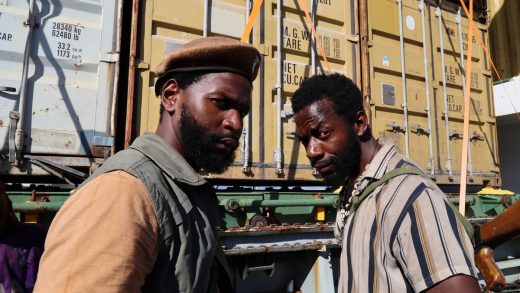:format(webp)/https://www.thestar.com/content/dam/thestar/entertainment/books/2022/10/18/william-shatner-on-the-interconnectedness-of-life-the-universe-and-everything/boldly_go.jpg)
William Shatner’s screen persona has long been about embracing the future: in the original 1960s “Star Trek” series and even recently by going (almost) into space. At 91 years of age, he’s in more of a reflective mood, something he explores in his new book “Boldly Go: Reflections on a Life of Awe and Wonder,” written with Joshua Brandon. The Star’s Deborah Dundas spoke to him a little bit about life, the universe and everything.
These essays contain a pretty deep and serious look at life.
I’ve been muddling through a thesis about the entanglement of the universe and everything and our connection to nature, and I’ve been reading a lot about the intricate interplay of everything on Earth being part of a whole. And I thought I would write about that.
Religion gets into those kinds of questions. So does spirituality. Are you religious or are you spiritual?
I wish I could have the faith of some of these religions that promise life after death. That would be very comforting. But I don’t believe that happens. And yet there’s incredible energy that is immediately gone when you die.
The idea of a life force is so powerful. Where it goes is a very profound question.
This great stallion that I had, beautiful horse, an incredibly energetic soul. This horse got old and he foundered on all four feet, which is a death sentence. And (I brought in the vet) and this great frightful stallion stood there while I petted him and then crumbled and fell into the hole once the shot was given to him. And I was immediately assailed by the thought of where did that energy go? It suddenly doesn’t seem logical to say “I’m alive” and then, boom, I’m dead. It seems to me that life force exists elsewhere. That’s why I think there’s life all over the universe. Do you think we’re alone? It’s impossible. Life is demanding — there’s mayhem going on all the time in order to survive because life demands it.
It’s partly the idea of interconnectedness.
And that’s a theme in the book as well. Our interconnectedness, our entanglement, if you will, with the universe but more specifically … with all of nature. We’re all dependent on each other, which goes for not just humans but for the trees and the … insects. And that connection is being broken everywhere.
How are you seeing it?
There’s a book I read about the disappearance of insects; we’re destroying insects, which are critical to the production of food. I drove along the lush (San Fernando) valley here, it would be like going along one of the highways from Toronto to Montreal, about that distance, and not a splat on my windshield. Where have all the insects gone?
It was lovely to read of your early work and your early days, the influence of Montreal and your father listening to opera and introducing you to music.
I lived on Marcil Avenue. And we had the Marcil gang. I had French friends and English friends, half a dozen kids on the block. It was a good time up to a certain degree. Going to school was tough because they pounced on me. I guess that’s what formed me.
In the final essay about starting your acting career in your early young adult life, you say that it simply did not occur to you that you could fail. Why is that?
I think it could be reduced to one word, which is stupidity. In Montreal as a kid I was on radio, there was theatre in the park, in my adolescent years I did CBC. I just continued to perform all my life. It never occurred to me to do anything else.
You also had dreams of being a musician. It was interesting to read your take on “Transformed Man” in 1968 and you weren’t sure whether people were going to take it as satire or not. But you were serious.
I had become this performer that knew poetry and loved the language. So when I was asked to do the album I thought, I don’t have a singing voice, but there are lyrics that are poetic.
And now you’ve gotten together with Dan Miller and Rob Sharenow and your music is having a bit of a renaissance.
I want to do this music video, a rallying cry for saving the world, of a song that Robert Sharenow and I wrote called “So Fragile, So Blue.”
Your trip to space …
I’ve been an ecologist for many years; I don’t have a degree but I’ve been very aware of ecology. I’m very much aware of the destruction of the world. (Hurricane Ian in) Florida is just the beginning of more and more destructive storms. I’m living in the midst of a 20-year drought … the world is changing rapidly and it’s not good. What can we do? That’s been a growing concern over the years to this point where I’m consumed by it.
What message would you most like to get across to people?
There are potential technologies to get us out of this mess.
What hope do you have for the human race? Do you think we have it in us to actually turn things around?
The human brain is so weird. We’re such a chaotic mess of the good and the bad and the selfless and the selfish. It’s the reptilian brain at war with the frontal lobe. I think we need another 10,000 years of evolution. I think in the end technology will get us out of a lot of it. But there’s going to be death and destruction.
Back to the book for a moment — you’ve played so many roles, what are you most proud of?
My usual answer is “talking to you.” But I suppose the real answer would be I wrote and then directed a one-man show in which I just talked like I’m talking to you. I got rave reviews and standing ovations and did my run (on Broadway) and toured the United States. People stood and applauded and they were very happy. The one-man show is like the top bar that you can leap. There’s no dancing girls, nothing to occupy the audience’s attention except you as an actor. I’m on a stage and the audience is listening to me … and not mak(ing) a sound because I’m going to intrigue and entrance. And I was successful in doing that. Pride is not something I deal with very much.
JOIN THE CONVERSATION



